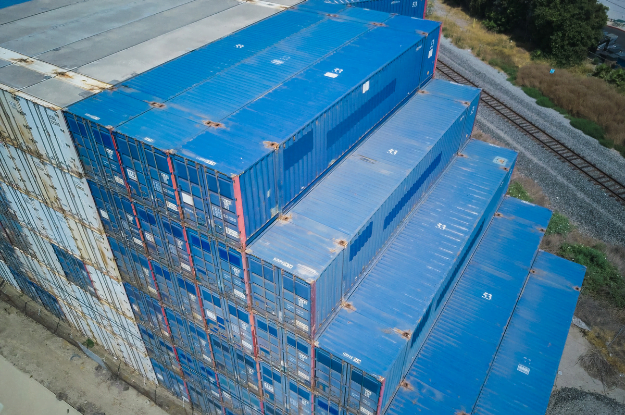Intermodal transport has become an indispensable part of the contemporary supply chain. In an ever-evolving and competitive business landscape, effective transportation is essential for commercial success. Businesses must wisely select their logistics strategies to remain a step ahead, and intermodal transport provides a tantalizing assortment of advantages that make it an attractive option for numerous ventures.
What is Intermodal Transport?
Intermodal transport refers to the movement of goods using multiple modes of transportation, seamlessly integrated to optimize efficiency and cost-effectiveness. This system typically involves the use of trucks, trains, ships, and even planes, ensuring that cargo reaches its destination through the most efficient route possible. The flexibility and versatility of intermodal transport enable businesses to transport goods both domestically and internationally with ease.
The Advantages of Intermodal Transport
- Cost-Effectiveness:
The monetary advantages of intermodal transportation are remarkable. Businesses can utilize several types of transport to build the most cost-effective shipping routes, thus cutting expenses and edging up profits. Furthermore, intermodal transport facilitates maximum cargo delivery, optimizing space utilization and reducing costs per unit.
- Environmental Sustainability:
In the face of increasing environmental concerns, intermodal transport presents a greener alternative compared to traditional methods. Utilizing trains and ships for long-haul transportation significantly reduces carbon emissions per ton-mile compared to using trucks exclusively. As a result, businesses that adopt intermodal transport can enhance their eco-friendly image and contribute to a more sustainable future.
- Reliability:
The intermodal transport system provides a clear edge over single-mode transportation in its unparalleled dependability. Easily transitioning from one mode to another, it drastically reduces the risk of damage and delays, empowering businesses to satisfactorily fulfill customer demands. This reliability renders it an incomparably advantageous transportation method.
- Flexibility and Scalability:
With intermodal transport, businesses can enjoy greater flexibility and scalability in their supply chain operations. As demands fluctuate, companies can adjust the combination of transportation modes to accommodate varying volumes of cargo. This adaptability allows businesses to expand their reach and respond to market changes effectively.
- Global Reach:
For businesses engaged in international trade, intermodal transport is a game-changer. It enables cargo to traverse continents, cross oceans, and navigate through various customs regulations with ease. This global reach opens up new markets and growth opportunities for businesses of all sizes.
- Scalability and Agility:
As businesses experience fluctuations in demand, the scalability and agility of intermodal transport become invaluable. It allows companies to adjust their transportation needs quickly, whether scaling up during peak seasons or downsizing during slower periods. This adaptability ensures that businesses maintain a competitive edge in dynamic markets.
- Improved Security:
The use of standardized containers in intermodal transport greatly facilitates the administration of rigorous security procedures. These containers can be sealed and tracked, significantly reducing the possibility of theft or tampering during transit – especially advantageous for safeguarding high-value or sensitive freight. Thus, users can reap the rewards of enhanced security measures to guarantee the safety of their shipments.
Understanding the Options in Intermodal Transport
Intermodal transport encompasses various options, each with its unique benefits. Understanding these options is crucial for businesses seeking to optimize their supply chain and transportation processes.
- Containerization:
Standardized shipping containers are pivotal for intermodal transportation, allowing the seamless transfer of merchandise between various modes of transport. By bypassing manual handling, these containers furnish a safeguard for goods and drastically reduce the likelihood of damage or loss.
- Rail Intermodal:
An efficient and cost-effective solution for long-distance cargo transportation, rail intermodal is a popular choice across continents. Making it ideal for transferring goods between significant cities and ports, trains are capable of transporting large volumes easily and securely. With lower emissions than other transportation methods as well as the capacity to manage bulky or heavy freight, rail intermodal stands out as an attractive option.
- Truck Intermodal:
Truck-rail intermodal combines the flexibility of road transportation with the long-haul efficiency of rail. It involves transporting goods by truck from the origin point to a rail terminal, where the cargo is then loaded onto trains for the main transportation leg. This option is ideal for shipments that require both speed and cost efficiency.
- Air Intermodal:
Air-rail intermodal is the superior choice for delivering shipments promptly. Combining air freight and rail transportation, it offers an unrivaled speed that cannot be matched by any other method of transport. Although it may come with a greater cost than its intermodal alternatives, it ensures meeting targeted timeframes and facilitates timely arrivals.
In conclusion, intermodal transport provides an excellent solution for businesses seeking efficient, cost-effective, and environmentally sustainable transportation. By combining multiple modes of transportation and utilizing standardized containers, intermodal transport streamlines logistics and enhances supply chain performance. Whether you require long-haul international shipments or flexible domestic transportation, intermodal options offer the versatility and reliability needed to stay ahead in today’s competitive market.
So, if you are looking to optimize your logistics, reduce costs, and leave your competitors behind, consider embracing intermodal transport for your cargo movement needs and learn more about MX Solutions. Embrace the future of transportation and unlock the true potential of your supply chain with intermodal transport!


